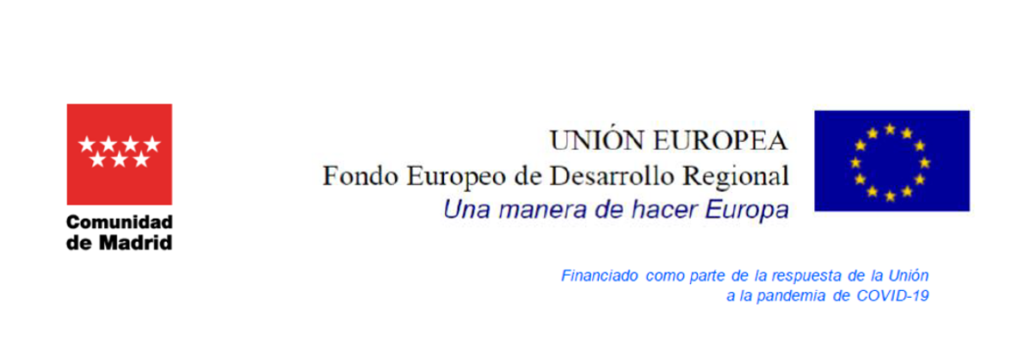Funding: Regional Government of Madrid
Region: Madrid
Project period: 2021 – 2022
Principal Investigator: Prof. Javier Llorca (javier.llorca@imdea.org)
The project MAMAP-CM presents different strategies – built on the world-class expertise of IMDEA Materials Institute on materials design and development, device manufacturing, and modelling and simulation – to protect, fight and forecast pandemic expansion. First, protection will be achieved through the development of a new generation of biodegradable, biobased microcomposites that are very efficient to deactivate viruses and can be used to manufacture masks, protective clothing, air filters and medical supplies by means of 3D printing and/or injection molding. Second, the contribution of the project to fight the pandemic will be focused on the development of 3D in vitro models of airway tissues that can be used to understand and treat any respiratory disease, including of course COVID-19. This technology platform would be of interest to biomedical researchers as well as pharmaceutical companies to research mechanisms of infection and to check the efficiency of novel therapies. Finally, forecasting of pandemic expansion will be achieved through a computational model of pandemic spread, including geographic information, that can account for the effects of mobility and behavior patterns that can be modulated via government policy. This tool would be based on coupled discrete-to-continuum models, of the type developed at IMDEA Materials for mechanical problems, in combination with machine learning algorithms and can be used to analyze coupled dynamics of pandemic expansion and governments’ actions during pandemics.
The three sub-projects are detailed below:
- Sub-project 1 “Biodegradable, biobased microcomposites for protection against viruses and bacteria”: the research activities of this subproject are aimed at the development of novel, efficient and affordable processing routes to manufacture sustainable microcomposites with antibacterial and antiviral properties.
- Sub-project 2 “Development of 3D in vitro models of airway tissues”: this sub-project addresses the development of 3D in vitro models of airway tissues with varying levels of complexity to enable them to be used in understanding and treating not only COVID-19 and its variants in the short term but potentially any respiratory disease in the long term. The ambitious final goal will be a technology platform that would be of interest to biomedical researchers as well as pharmaceutical companies.
- Sub-project 3 “Forecasting and control of pandemics through modelling and reinforced learning”: Sub-project 3 aims at developing a model of pandemic spread, including geographic information, that can account for the effects of mobility and behavior patterns that could have been modulated via government policy from the available information of the COVID-19 pandemic in Spain.
The successful accomplishment of the objectives of sub-project 1 will open the possibility to manufacture personal protective equipment (masks, clothes) and medical devices that provide enhanced protection against airborne infections due to viruses and bacteria while they meet stringent requirements in terms of sustainability and environmental impact. In addition, it will offer an additional technology to improve indoor air quality by the action of the antiviral/antibacterial activity of the microparticles in air filters.
Sub-project 2 is expected to deliver as main result a technology platform that mimics key aspects of the airways in vitro as well as a methodology for the in situ characterization and analysis of these in vitro models.
Finally, sub-project 3 will provide a calibrated model to assess the effect of pandemic control policies in Spain. In comparison with the currently available models, the new tool will be able to identify the most relevant geographic/social parameters for pandemic dynamics and will be able to be used by policy makers to explore the optimum strategies for pandemic containment. Both factors can have a huge impact to guide government policies regarding confinements, recreational activities, schooling, etc. in present and future pandemics.
Funded by:
“Este proyecto se encuentra cofinanciado por la Comunidad de Madrid y la Unión Europea, a través del Programa Operativo del Fondo Europeo de Desarrollo Regional (FEDER 2014-2020), financiado como parte de la respuesta de la Unión a la pandemia de COVID-19”.

